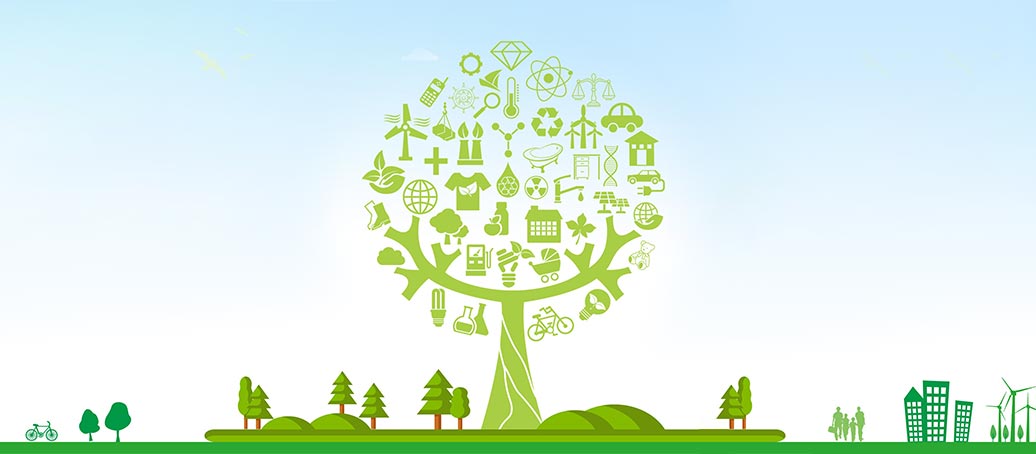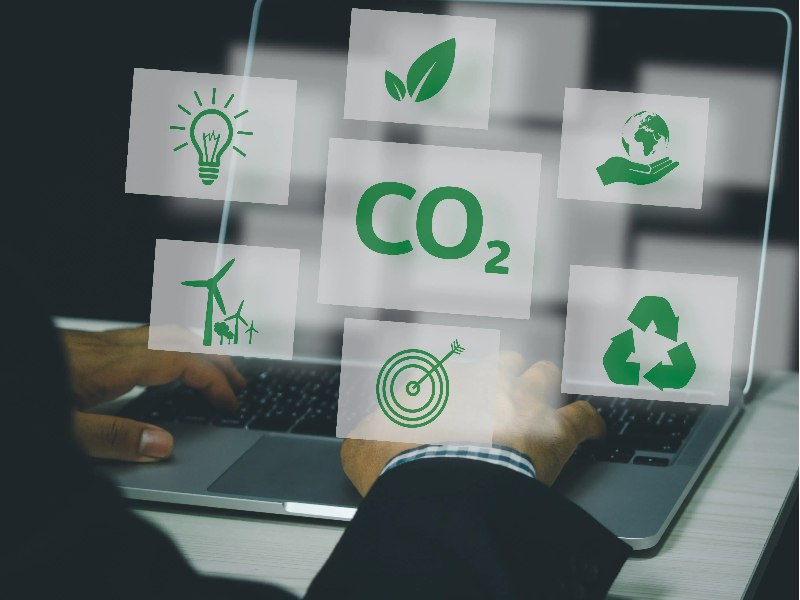-
 Overview
Overview
Centre Testing International Group Co., Ltd. (CTI) is a market leader in testing, inspection, certification, calibration, audit, training & technical services; building trust between governments, enterprises, and consumers.
-
 Sustainability
Sustainability
By building a full value chain ESG governance system covering the strategic decision-making level, management execution level and business operation level, it actively practices penetrating management of ESG risk and opportunities, empowering sustainable development across the industry chain.
-
 Our service
Our serviceCentre Testing International Co., Ltd. (CTI) is the pioneer and leader in the TIC Industry which provides one-stop solutions on testing, inspection, certification, calibration, audit, training & technical services.
-
By Industry
Our service capabilties cover the upstream and downstream of the supply chain including textile and apparel,toys,electronic appliances,medical health,food...andother industries.
-
 Environment
Environment
-
 Raw Material & Fuel Chemicals
Raw Material & Fuel Chemicals
-
 Textiles, Apparel, Footwear & Accessories
Textiles, Apparel, Footwear & Accessories
-
 Food & Agricultural Products
Food & Agricultural Products
-
 Cosmetics, Personal Care & Household Chemicals
Cosmetics, Personal Care & Household Chemicals
-
 Building Materials&Construction Engineering
Building Materials&Construction Engineering
-
 Electronic & Electrical Appliances
Electronic & Electrical Appliances
-
 Toys, Furniture & Home Decoration
Toys, Furniture & Home Decoration
-
 Industrial Equipment & Manufacturing
Industrial Equipment & Manufacturing
-
 Rail & Aviation
Rail & Aviation
-
 Automotive & Spare Parts
Automotive & Spare Parts
-
 Pharma and Medical Services
Pharma and Medical Services
-
 Maritime Vessel Compliance Testing
Maritime Vessel Compliance Testing
 By Industry
By IndustryOur service capabilties cover the upstream and downstream of the supply chain including textile and apparel,toys,electronic appliances,medical health,food...andother industries.
-
-
 Specialty
SpecialtyComprehensively guarantee quality and safety, promote compliance and innovation, demonstrate brand competitiveness, and achieve higher quality, healthier, safer, and greener sustainable development.
-
 Management
ManagementWe have established a clear governance structure in accordance with listing requirements and national regulations and policies to deal with internal and external challenges and achieve sustainable development.
-
 Information DisclosureWe are committed to establishing normal and effective two-way communication with shareholders and investors. We have established a complete information disclosure mechanism to convey information to shareholders in a timely manner.
Information DisclosureWe are committed to establishing normal and effective two-way communication with shareholders and investors. We have established a complete information disclosure mechanism to convey information to shareholders in a timely manner.
-
 Talents Policy
Talents PolicyEnsuring the basic rights and benefits of employees;
Providing professional skills training to promote employees’ growth;
Carrying out various kinds of activities to balance employees’ work and life.
-
 RecruitmentWelcome to join CTI family! We are providing a platform for you to show your talents and achieve your career aspiration.
RecruitmentWelcome to join CTI family! We are providing a platform for you to show your talents and achieve your career aspiration.
Carbon neutrality, also known as "Net Zero Emission", refers to the carbon emission necessary for human economic and social activities, which is captured, utilized or stored by forest carbon sink and other artificial technology or engineering means, so that the net increase of greenhouse gas emitted into the atmosphere is zero. CTI Certification takes sustainable development business such as green, low-carbon and energy efficiency services as the key direction of its future development, and has been qualified for a variety of greenhouse gas project auditing and energy-saving services at both home and abroad

Carbon neutrality, also known as "Net Zero Emission", refers to the carbon emission necessary for human economic and social activities, which is captured, utilized or stored by forest carbon sink and other artificial technology or engineering means, so that the net increase of greenhouse gas emitted into the atmosphere is zero. CTI Certification takes sustainable development business such as green, low-carbon and energy efficiency services as the key direction of its future development, and has been qualified for a variety of greenhouse gas project auditing and energy-saving services at both home and abroad
What is carbon neutrality
Carbon neutrality, also known as "Net Zero Emission", refers to the carbon emission necessary for human economic and social activities, which is captured, utilized or stored by forest carbon sink and other artificial technology or engineering means, so that the net increase of greenhouse gas emitted into the atmosphere is zero. Greenhouse gas emissions are calculated in terms of "Carbon Dioxide Emissions Equivalent", so they are often referred to as "Carbon Emissions".
The significance of carbon neutrality
With the impact of human activities on global climate, the impact of climate crisis is becoming more and more serious, almost everywhere. Due to global warming, we are experiencing a series of disastrous weather and climate events, such as heat wave, flood, drought, forest fire and sea level rise. The global average temperature is rising at an unprecedented rate, the possibility of global warming level not exceeding 1.5°C before industrialization is rapidly reduced, and the risk of human crossing the irreversible tipping point is also increasing. At present, the global average surface temperature has increased by more than 1°C, and the warming rate in China is higher than the global average warming level. If the current rate of warming continues, the rise of global temperature may reach 1.5°C from year 2030 to 2052. The observation shows that the warming range caused by climate change in China is higher than the global average, and the direct economic loss caused by climate change is 7 times higher than the global average.
The Paris Agreement establishes the basic framework for the international community to cooperate in tackling climate change after 2020. It proposes to control the increase of the global average temperature within 2°C compared with the pre-industrial level, and strive to control the temperature rise within 1.5°C. As a major responsible country, in order to cope with the challenges posed by climate change with other countries, China's president Xi Jinping announced at the General Assembly of the United Nations that China will strive to achieve a peak carbon emissions by 2030 and achieve the target of carbon neutrality by 2060.
The necessity of carbon neutral strategy in enterprises
Research shows that from the global point of view, it is technically and economically feasible for developed countries to achieve zero carbon emissions of energy and industrial systems before 2050 and developing countries before 2060, without relying on permanent, large-scale, nature based carbon sequestration solutions. According to the Second Two-Year Update Report on Climate Change of the People's Republic of China issued by the Ministry of Ecological Environment, China's total greenhouse gas emissions in 2014 were 11.186 billion tons of carbon dioxide equivalent, of which the emissions from energy activities and industrial production processes were 9.559 billion tons of carbon dioxide equivalent and 1.718 billion tons of carbon dioxide equivalent respectively, accounting for the vast majority of greenhouse gas emissions. Most of the greenhouse gas emissions from energy activities are also caused by the industrial production sectors.
Therefore, as the main body of emissions, industrial enterprises shall be directly responsible for achieving the target of carbon neutrality in China, and need to undertake most of the target tasks of carbon peak and carbon neutrality. Enterprises are not only facing fierce market competition, but also shall conform to the trend of the times, and make their contributions to the target of carbon emission peak and carbon neutrality. This poses a new challenge to the enterprise and also a new opportunity for its development. Enterprises shall formulate and implement the carbon neutrality strategy as soon as possible, which is conducive to seize the favorable market position and improve the competitiveness and development potentials of enterprises when it is just the time "Carbon Neutrality" becomes a long-term national strategy.
Five levels of carbon neutrality in enterprises
The carbon neutrality strategy in enterprises can be divided into the following 5 levels from low to high:
- Carbon emission (greenhouse gas emission) accounting (excluding scope 3)
- Enterprise level annual carbon neutrality and large-scale activity carbon neutrality
- Comprehensive accounting and data disclosure of carbon emissions (including scope 3)
- Setting and strategy implementation of scientific emission reduction target
- Promote carbon neutrality in supply chain
Professional consulting services provided by CTI Certification
According to the 5 levels of carbon neutrality implemented by the above enterprises, CTI Certification can provide a full range of services to meet the practical requirements of carbon neutrality of enterprises at different levels.
|
Service level |
Carbon neutrality level in enterprises |
Services provided by CTI Certification |
|
Senior |
Promote carbon neutrality in supply chain |
In depth cooperation to develop highly customized service solutions for the core enterprises in the supply chain. |
|
Setting and implementation of scientific emission reduction target |
—Range 1, range 2 emission accounting and emission reduction target model setting —Scope 3 carbon footprint measurement and target setting —Formulate the implementation plan of carbon emission reduction target in line with SBTi requirements and evaluate the feasibility —Submit targets to Science-Based Targets Initiative —Suggestions on other net zero emission targets —Evaluation and consultation on energy efficiency improvement and energy transformation |
|
|
Intermediate |
Comprehensive accounting and data disclosure of carbon emissions (including scope 3) |
—Comprehensive accounting of carbon emissions based on GHG protocol series standards (including scope 3) —CDP disclosure rating consulting service (written in both Chinese and English) —Life cycle analysis (LCA) of carbon emissions —Consultation and preparation of ESG report (in both Chinese and English) —Documentation of data disclosure in accordance with GRI and ISAE 3000 (for specific disclosure projects) —Suggestions on procurement and management of carbon credit assets |
|
Enterprise level annual carbon neutrality and large-scale activity carbon neutrality |
—Comprehensive accounting of carbon emissions from large-scale activities —Purchasing agent and matching of carbon credit assets used to realize carbon neutrality |
|
|
Junior |
Carbon emission accounting (excluding scope 3) |
—Greenhouse gas emission verification and inventory services based on national standards —Greenhouse gas emission verification service based on ISO 14064 standard |




































 粤公网安备 44030602000441号
粤公网安备 44030602000441号